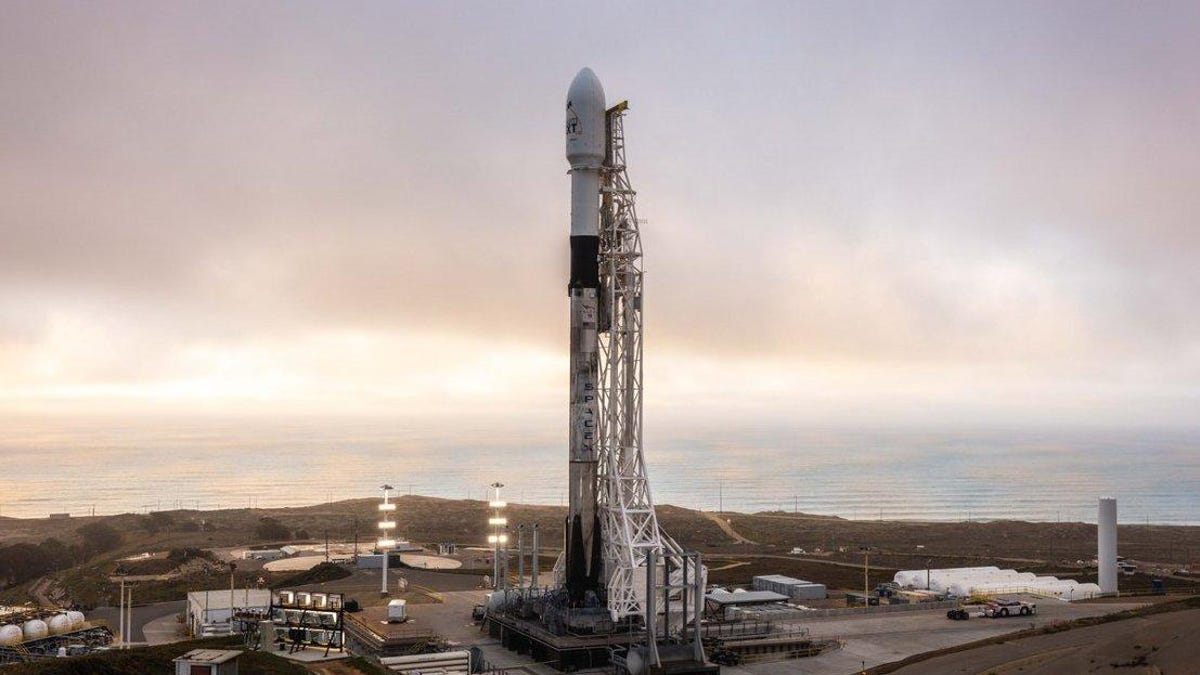SpaceX Starlink launch called off to 'maximize mission success'
The mission will be delayed by "about a week," according to SpaceX.

Falcon 9 sits ready on the launchpad for the final Iridium NEXT mission.
SpaceX CEO Elon Musk wants to bring speedy broadband to the world, providing a megaconstellation of satellites that swarm around the Earth like a flock of internet-capable pigeons looking for some bread.
OK, bad analogy, but for Musk to achieve his lofty goal, SpaceX will need to successfully launch 60 satellites currently tucked neatly away inside a Falcon 9 payload bay. After high winds delayed the mission Wednesday, SpaceX has again decided to stand down to "update satellite software and triple-check everything again." The next launch opportunity will be in "about a week."
Standing down to update satellite software and triple-check everything again. Always want to do everything we can on the ground to maximize mission success, next launch opportunity in about a week.
— SpaceX (@SpaceX) May 17, 2019
The Starlink mission is set to deliver those first 60 internet satellites to orbit when it finally launches. Provided everything goes as planned, the launch will pave the way for a satellite megaconstellation that will eventually contain over 12,000 of the miniature internet-providing boxes of future tech.
As is par for the course for SpaceX now, the company will attempt to land the Falcon 9 booster on a droneship known as "Of Course I Still Love You," floating along in the Atlantic Ocean. Around an hour into the mission, the satellites will be deployed.
If you're the kind of person who loves a spaceship and wants to watch along, SpaceX will provide a livestream at the webcast homepage. SpaceX generally starts streaming around 15 minutes prior to launch.
The first 60 satellites will be dropped off at an altitude of approximately 270 miles (440 kilometers) above the Earth, if everything runs smoothly, and then they will gently propel themselves out to an orbit of about 340 miles (550 kilometers).
This will be the third time this particular Falcon 9 booster has ascended to space, according to SpaceX, with two previous flights coming in September 2018 and January 2019.
The booster supporting this mission previously flew in support of the Telstar 18 VANTAGE and Iridium-8 missions pic.twitter.com/Uz8uWx6ojw
— SpaceX (@SpaceX) May 15, 2019
Musk has tried to temper expectations of this first, historic deployment of satellites, saying that "much will likely go wrong" and these first 60 satellites are a test, providing a demonstration of Starlink's future capabilities. Another six launches will be required before even "minor" coverage is offered.
You can read all about the Starlink plan for space internet domination in CNET's handy explainer.
Originally published May 15, 3:06 p.m. PT.
Updates, 5:45 p.m. PT: Adds SpaceX says weather conditions are favorable; 7:50 p.m.: Adds SpaceX has scrubbed Wednesday's launch; 3:28 p.m., May 16: Adds launch details, links to webcast; 6:45 p.m.: Adds SpaceX scrubs again.

